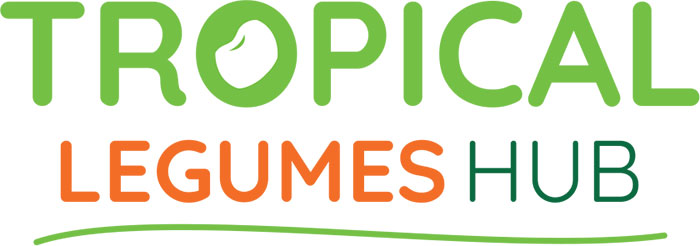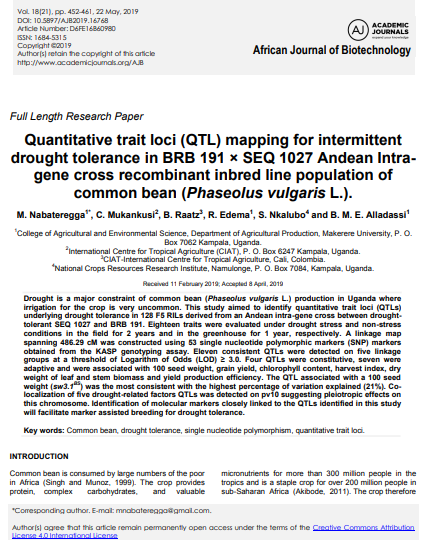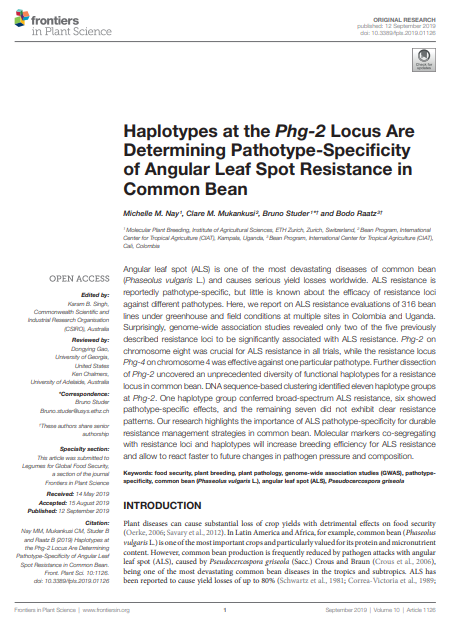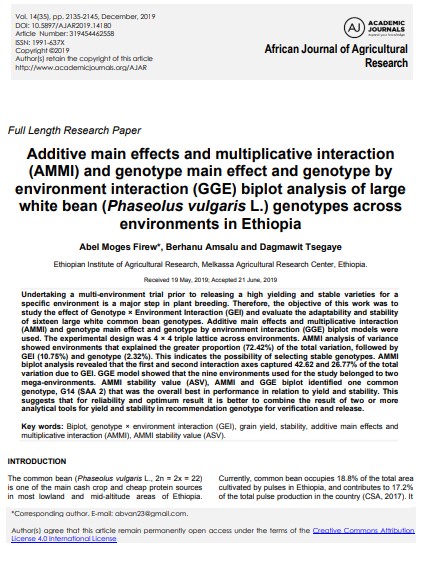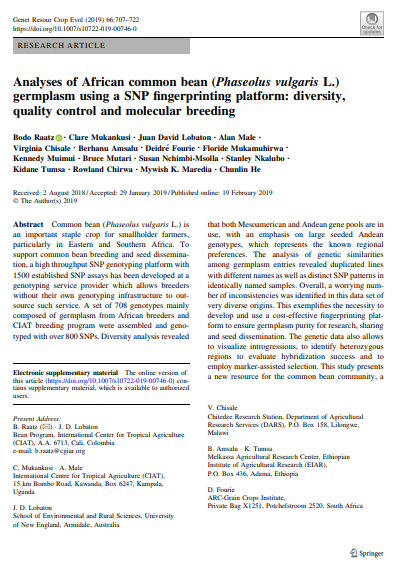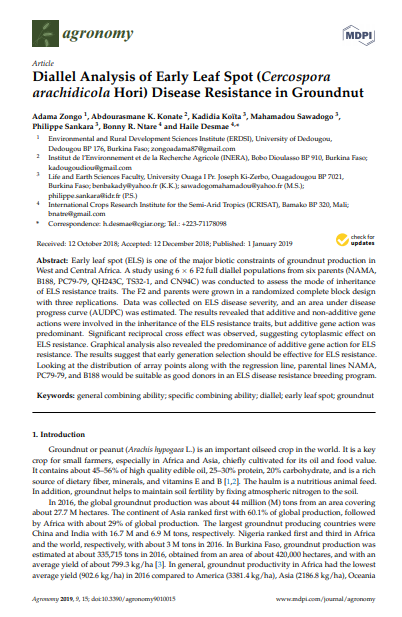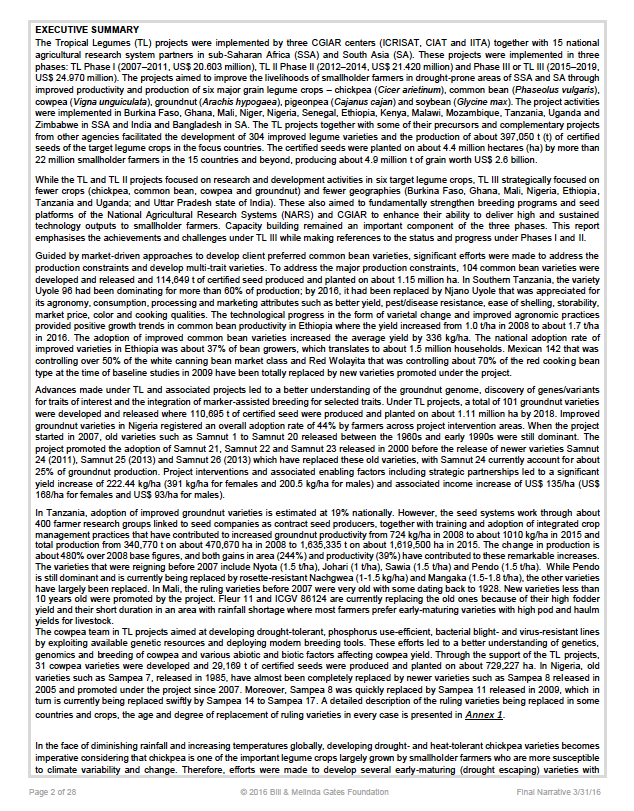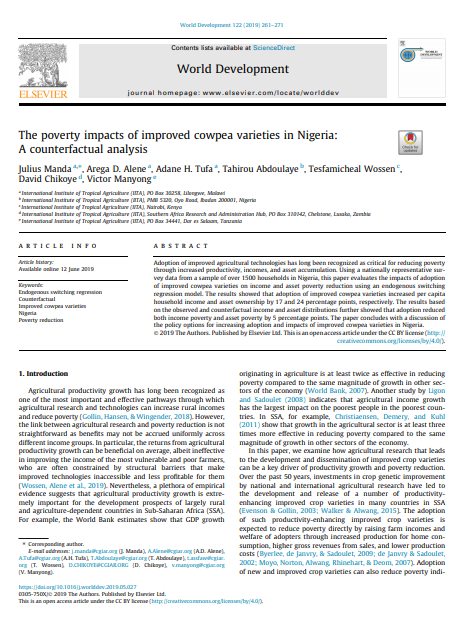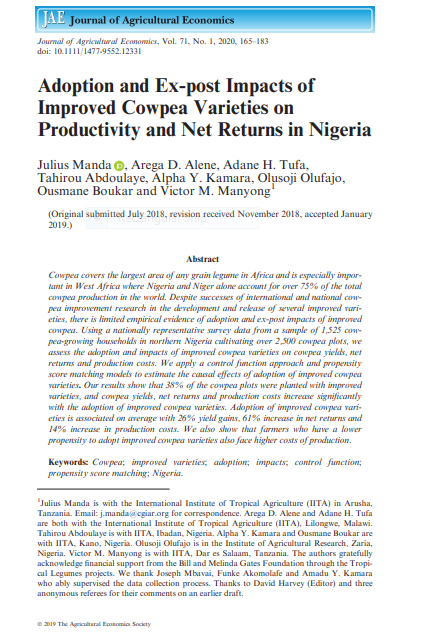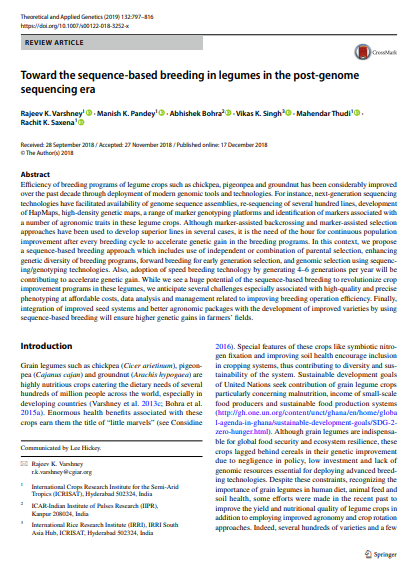Quantitative trait loci (QTL) mapping for intermittent drought tolerance in BRB 191 × SEQ 1027 Andean Intragene cross recombinant inbred line population of common bean (Phaseolus vulgaris L.)
This article presents the results of a study to identify quantitative trait loci (QTLs) underlying drought tolerance in common bean.
Project: TLIII
File type: PDF (606.75 KB)
Haplotypes at the Phg-2 Locus Are Determining Pathotype-Specificity of Angular Leaf Spot Resistance in Common Bean
This article reports on ALS resistance evaluations of 316 bean lines under greenhouse and field conditions at multiple sites in Colombia and Uganda.
Project: TLIII
File type: PDF (2.20 MB)
Additive main effects and multiplicative interaction (AMMI) and genotype main effect and genotype by environment interaction (GGE) biplot analysis of large white bean (Phaseolus vulgaris L.) genotypes across environments in Ethiopia
This article presents the results of a study on the effect of Genotype × Environment Interaction (GEI) and evaluates the adaptability and stability of 16 large white common bean genotypes.
Project: TLIII
File type: PDF (668.17 KB)
Analyses of African common bean (Phaseolus vulgaris L.) germplasm using a SNP fingerprinting platform: diversity, quality control and molecular breeding
This article describes a new SNP genotyping platform that has been set up that allows breeders without their own genotyping infrastructure to outsource such services to improve the efficiency and quality of seed handling activities, breeding, and seed dissemination through molecular tools.
Project: TLIII
File type: PDF (3.26 MB)
Diallel Analysis of Early Leaf Spot (Cercospora arachidicola Hori) Disease Resistance in Groundnut
This article describes a study conducted on diallel populations from six parents to assess the mode of inheritance of early leaf spot (ELS) resistance traits.
Project: TLIII
File type: PDF (888.31 KB)
Tropical Legumes III: Final Report
Final report to the Bill & Melinda Gates Foundation on the achievements of the Tropical Legumes III project, which ran from 2015 to 2019. Note, some financial details have been redacted.
Project: TLIII
File type: PDF (580.92 KB)
The poverty impacts of improved cowpea varieties in Nigeria: A counterfactual analysis
A paper evaluating the impacts of adoption of improved cowpea varieties on income and asset poverty reduction, using nationally representative survey data from a sample of over 1500 households in Nigeria and an endogenous switching regression model.
Project: TLIII
File type: PDF (732.50 KB)
Adoption and ex-post impacts of improved cowpea varieties on productivity and net returns in Nigeria
An assessment of the adoption and impacts of improved cowpea varieties on yields, net returns, and production costs in northern Nigeria, using data from 1,525 households and applying a control function approach and propensity score matching models.
Project: TLIII
File type: PDF (203.97 KB)
Marching towards self-sufficiency in chickpea
A review of chickpea research in India during the last five decades and future research priorities to tackle newer challenges, as India aims to attain self-sufficiency in pulse production by 2050.
Project: TLIII
File type: PDF (355.65 KB)
Toward the sequence-based breeding in legumes in the post-genome sequencing era
This this article, the authors propose a sequence-based breeding approach which includes use of independent or combination of parental selection, enhancing genetic diversity of breeding programs, forward breeding for early generation selection, and genomic selection using sequencing/genotyping technologies.
Project: TLIII
File type: PDF (2.23 MB)
